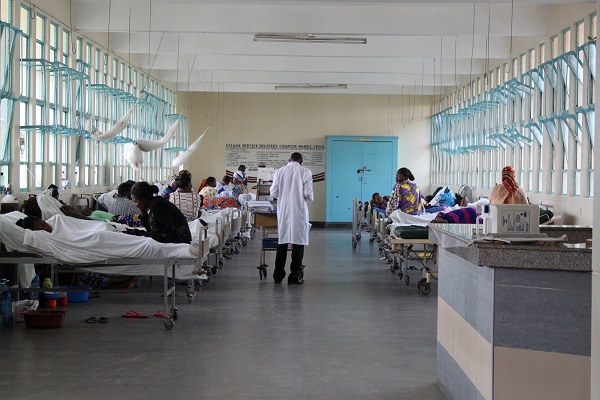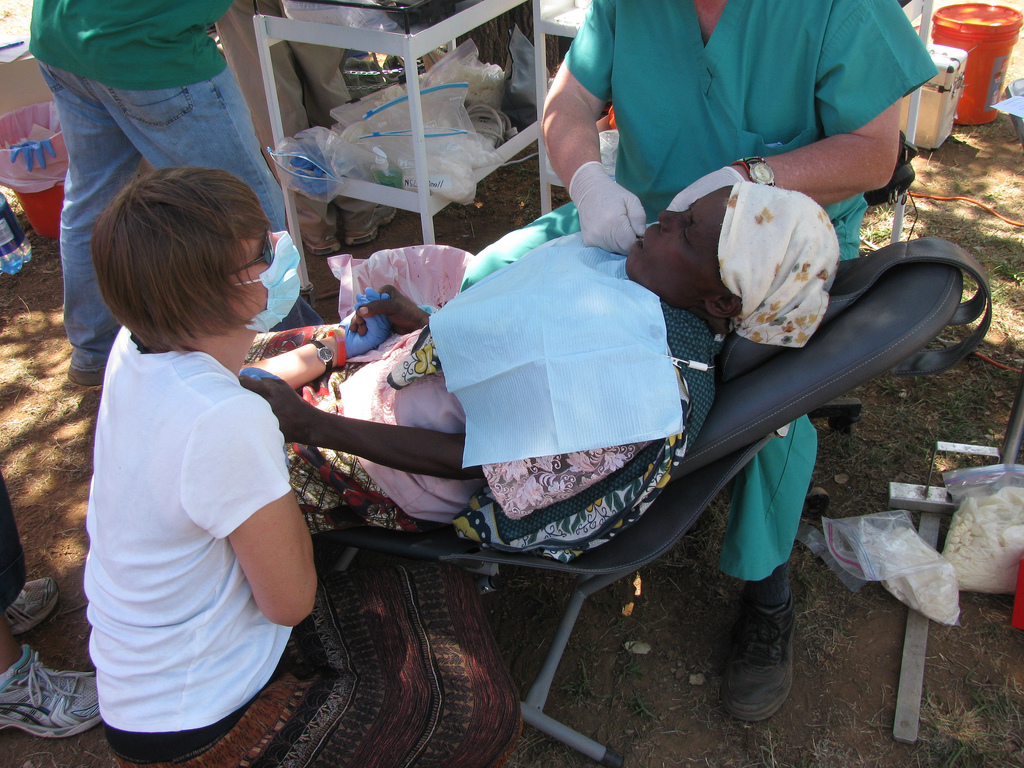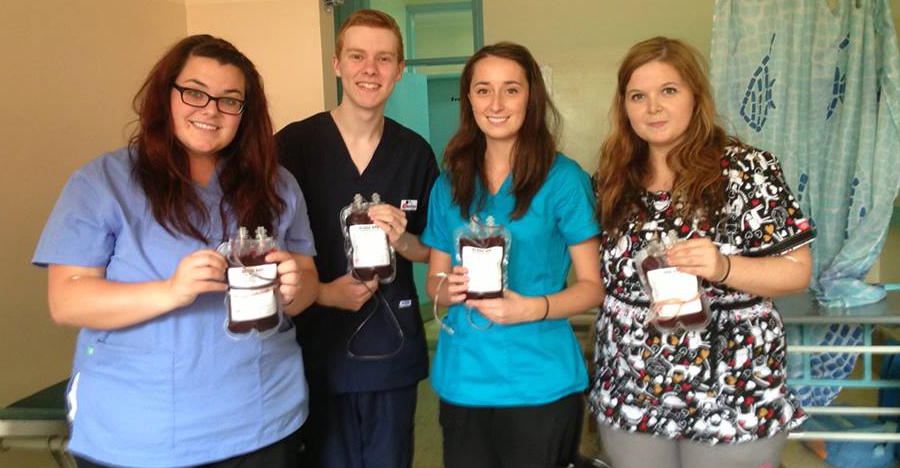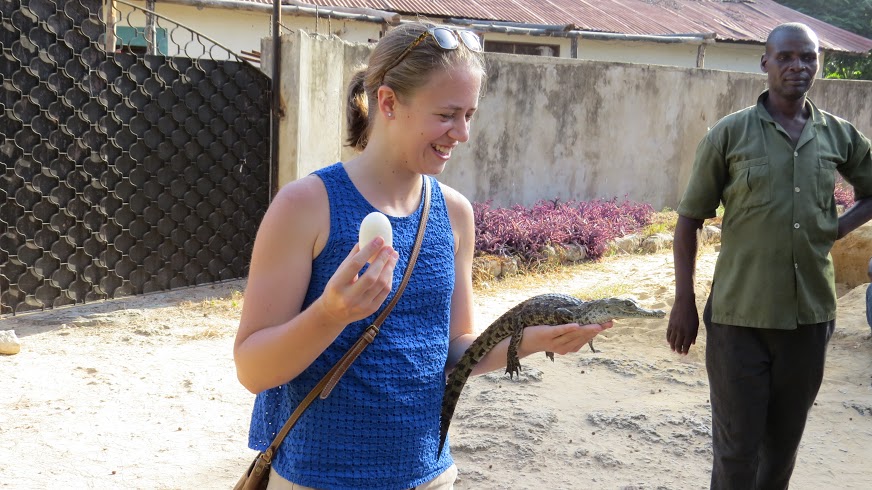 Visit Elective Africa website Visit Elective Africa website
|


|
|
|
| Transformative Placement Experience |
 |
|
We hope you had a great Easter holiday and enjoyed good times with family and friends. April is here. With April comes spring - the season of growth and rebound. This month our main focus topic is on the impact of globalization on health which vary according to the predisposing physiological, geological and socio-economic factors. In our second article we enlighten you on the healthcare placements that will boost your career growth and what to consider when choosing a placement. Provider-patient relationship in developing world has a unique edge, since proper relationship is essential for patients outcomes improvement we shed some light on how the relationship is nurtured on this end. In the viewpoint section we feature Alisa Anderson, a senior medical student from State University Of New York Upstate Medical University who shares with us her enriching experience. Have a nice read. Back to top |
| Globalization and Health |
 |
|
Globalization is defined as the process of international integration arising from the interchange of world views, products, ideas and aspects of culture. The world is increasingly becoming a global village; healthcare is affected and the delivery of health services is influenced in numerous ways. Any student with interest in the medical field has to definitely understand the various effects of globalization on health and healthcare delivery. Improved telecommunication Communication has taken a central role in the globalization phases. In healthcare the growth of communication has enabled the sharing of technologies. The various health systems can hence learn from each other on the best practices. At the click of the button one can get fine details on how to perform a medical procedure say diagnosis of cancer. Sharing information has also enabled patients to be more empowered gather information on preventing various healthcare conditions that may confront them. Improvement of the health system Equally related to telecommunication is the ability of governments to borrow from each other and learn from each other. With the world becoming a global village the health systems can learn from each other, benchmark and improve on the health delivery to its populations. Spread of communicable diseases Every healthcare professional must be well informed that as the world becomes a global village, the spread of communicable conditions is a reality. People can now transverse the world and regions with ease, thanks to developed communicationa and transport systems. As one travels from one place to the other they are exposed to disease causing microorganisms, such as swine flu and bird flu. Global counter measures have to be developed to curb the spread of diseases with globalization and amass optimal benefits from the globalization. Unregulated distribution of drugs Focused medication based on approved research, proper prescription is very important for achievement of the goal of a healthy population. Globalization has led to the unregulated drugs distribution of drugs by pharmaceuticals and this in turn has led to the increased drug resistance. Drugs resistance causes lack of effectiveness in the delivery of care since patients can less respond to various treatments medications available. Globalization has also led to the increased distribution of illicit drugs which in turn affects the health and wellbeing of the population. Back to top |
| The African Side of Care |
 |
|
Provider-patient relationship is the foundation of contemporary medical ethics, which is principal to the practice of medicine and is essential for the delivery of high quality healthcare in the diagnosis and treatment of diseases. All professionals in the field of healthcare must have a clear understanding of how to relate with the patients and how to make their encounter count. Proper provider-patient relationship has been known to improve the patients’ health status and influence a positive outcome of the treatment. Special attributes of the health system in the developing world makes it necessary to understand some key elements of the relationship which as one plans for an elective or a pre-placement must keenly look out to ensure that the elective is one of a kind. Active listening: Attention to details It is a general trend for patients in the developing world to present cases in a very advanced stage of care. At this particular stage, the patient is not in a best position to explain the disease history or the etiology. They base their explanations on lay theories of disease and may even associate their condition to misfortunes. As the healthcare provider, it is important to learn how to decode the important bits of the case in order not only to foster the relationship but also to deliver accurate care. Educating the patient There exists a paternalistic provider-patient relationship in the developing World. Interestingly, a majority of patients will assume no knowledge to their condition apart from their subjective view of their being unwell. Because of stigmatization which is broadly present our society the patient might not be open to the discussion of what affects them. As part of the relation, the healthcare professional must educate the patient on the need of the care they receive and the need for adherence to treatment given. By educating the patient they feel more empowered and this boosts the relationship as well as helping them cross the lines of stigma. Consent giving The concept of informed consent is one that has a broad scope and its nature has attracted massive research. Whether it is written consent or implied consent several issues are special to the Kenyan case. To start with the patients, present the cases in advanced stages as prior mentioned and thus they may sometimes be incapacitated to choose on their treatment or make an informed decision. The provider has to therefore result to use of third party consent and here again the doctor has to act as the agent of the patient to deliver what is best for the patient. In events that the patient is responsive, the doctor has to provide a range of alternatives communicate effectively in order for the patient to choose. This underlines the extensive role of providers in building the relationship in the developing world. Language and culture Kenya literacy demographics 2015 indicate that 78% of the population above 15years can read and write. This is a major advantage for the ones seeking a health placement with us, communication is key to developing good rapport with the patient and language takes the Centre stage. In the event of language barrier, the provider seeks for a language mediator in order to deliver care. Culture in itself present a pertinent challenge to the relationship, in some cases the women are not allowed to speak about their health or even consult a provider without notifying their husbands; the provider has therefore in building the relationship to consider the culture and incorporate the view of the husband and this boosts provider patient relationship. In religions where some practices such as issue of oral medication, giving of certain vaccinations then the provider must assume the role of an educator, and listen to the specifications of the patient in order to foster the relationship deliver what is best for the patient. Role of empathy In the Kenyan health system, due to the limited staff the waiting time is high. Patients have therefore to endure long queues to get to the provider. To bolster the relationship, the physician should seek to reassure the patient of the best service. The patient encounter time is also flexed to the major details; the large number of patients implies minimal time for each patient. To communicate and therefore relate to the patient the professional must grip the core details of care and probable implications as well as the diagnostic and treatment procedure. Back to top |
| Greening Your Choice |
 |
|
Are you considering a placement in healthcare? In order to choose wisely where to be placed, you must think broadly of the value,benefits and the experience such a placement will offer you. Greening your placement choice will be benefial. Gain experience in a new health system The health system in developed world has superior characteristics, it is widely known for heavy presence of proper and advanced medical technologies, presence of highly qualified health providers and prioritized financing systems hence the challenges and the learning opportunities for electives are minimal. On the other hand, the developing world is faced with low personnel to patient ratio, low finances available and medical technologies that are not advanced. One can therefore get to learn a new system where resources are constrained and the expectations are heavy innovation thus takes a Centre stage. Experience a new set of diseases and treatments The poor living conditions, low hygienic behaviors and poor health seeking behavior’s expose populations to conditions such as cholera and typhoid. These diseases give the students a new perspective of care and equip them with new skills that are key to training. The students in an elective with us also learn new methods of treatment based on symptoms rather than the elaborate diagnostic procedures. Utilize skills gained in a class setting Theoretical training gives one skills in a detailed and comprehensive manner. The application of this skills in reality is what is paramount to the field of medicine. An elective with us gives one a chance of putting into practice the skills gained in lecture settings into a practical set up. Experiential learning Health as a good is delivered by different professionals whose roles are linked to ensure completeness in care, a wisely selected placement helps one to clearly learn the supplementary roles of this professionals practically. There is no greater way to learn than subjecting your theoretical knowledge to practical test while working alongside these healthcare professionals hence one is able to acquire extensive knowledge on the functioning of the exceptional healthcare system. Personal perspective Working in a different healthcare system from the one you are used to opens up your eyes. You may encounter strange diseases which include tropical and infectious diseases that have been phased out in the developed countries. Improvising medical equipment will invoke your creativity and critical thinking which will go far in helping you to learn and understand healthcare delivery in a different view. Come make a difference,Learn and have fun Back to top |
| My Enriching Experience - Alisa Anderson |
 |
|
Enriching is the word I would use to summarize my Elective Africa experience during my one month stay in Kenya. I saw and did things that I would never have done at home in the US. I believe I have become a better person. The city of Mombasa is one of the largest port cities in East Africa. The residents have a very diverse culture and there are great sites to visit which have a good record of history. The beaches are incredible and a walking distance from our residential home. The people are friendly, hard working and there is charm to the sprawling city that makes it feel navigable to an outsider. The hospital work at The Coast Provincial General Hospital is unlike anything I have done before. The patients are sicker and the doctors scarce which allowed me as a student to be really involved in care and decision-making. I did CPR for the first time and it was on an infant, I also did a paracentesis for the first time and it was without an ultrasound. These are some of the unique challenges at the hospital that have opened my eyes to different ways of practicing medicine that relies more on instinct and less on excessive testing which has improved my clinical practice skills. I am very grateful to the doctors that took their time to teach me and the patients who were also thrilled to let me learn from them. While in Mombasa we also spent time teaching at a local public school in a nearby slum, teaching subjects like English and Science was very rewarding especially in a bare bones setting. These kids have very little but very smart! The teachers that work so hard to give them education are inspiring. The kids taught me more as much as I taught them; they taught me how to speak Swahili and beautiful tales of Mombasa. We had a blast playing football, teaching each other songs and playing in the yard even though, we were not always on the same page with our languages it was easy to communicate with a smile and a high five. I will miss seeing the kids very much when I return home. Another amazing and jaw dropping experience that we had during our time in Kenya was the safari trip to Maasai Mara National Reserve although, a long and bumpy (literally) journey it was worth every second to see a huge variety of animals enjoying their natural environment. I asked myself regularly “is this real life?” and saw some of the most incredible views of the savannah. We were mere meters away from elephants, lions, zebra, giraffes, warthogs, hyenas… and the list goes on. It felt like a real live version of the Lion King minus the part where Mufasa dies and Simba loses his way, and multiply the song and dance parts times a dozen. We also met some fun people from all over the world, and bonded over our shared adventurous spirits. My experience in Mombasa with Elective Africa was the best. I will cherish the friendships I have developed, the memories I made and the skills I learnt there.
Back to top |
|
|

 April 2016
April 2016